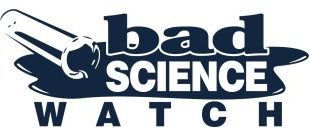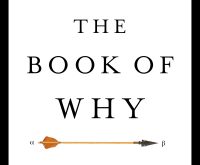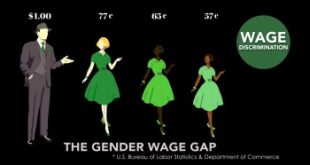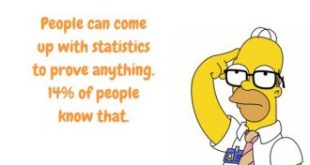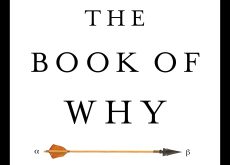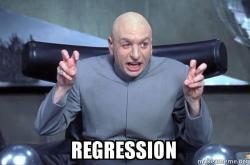Wenn Wissenschaftler etwas herausgefunden haben – wann kann man sich auch tatsächlich darauf verlassen? Eine Antwort lautet: Wenn Fachkollegen die Studie überprüft haben. Eine andere: Wenn sie in einer renommierten Fachzeitschrift veröffentlicht wurde. Doch manchmal reicht auch beides zusammen nicht aus, wie Forscher jetzt gezeigt haben. Und zwar auf die beste und aufwendigste Art: Sie haben die zugrundeliegenden Experimente wiederholt. Und geschaut, ob noch einmal dasselbe...
Read More »Some common misunderstandings about randomization
Some common misunderstandings about randomization Randomization is an alternative when we do not know enough to control, but is generally inferior to good control when we do. We suspect that at least some of the popular and professional enthusiasm for RCTs, as well as the belief that they are precise by construction, comes from misunderstandings about … random or realized confounding on the one hand and confounding in expectation on the other … The RCT...
Read More »Tractability, truth, and ignorability
Tractability, truth, and ignorability Most attempts at causal inference in observational studies are based on assumptions that treatment assignment is ignorable. Such assumptions are usually made casually, largely because they justify the use of available statistical methods and not because they are truly believed. Marshall Joffe et al. An interesting (but from a technical point of view rather demanding) article on a highly questionable assumption used in...
Read More »Berkson’s paradox or why attractive people you date tend to be jerks
Berkson’s paradox or why attractive people you date tend to be jerks Have you ever noticed that, among the people you date, the attractive ones tend to be jerks? Instead of constructing elaborate psychosocial theories, consider a simpler explanation. Your choice of people to date depends on two factors, attractiveness and personality. You’ll take a chance on dating a mean attractive person or a nice unattractive person, and certainly a nice attractive...
Read More »Wage discrimination and the dangers of ‘controlling for’ confounders
Wage discrimination and the dangers of ‘controlling for’ confounders You see it all the time in studies. “We controlled for…” And then the list starts. The longer the better. Income. Age. Race. Religion. Height. Hair color. Sexual preference. Crossfit attendance. Love of parents. Coke or Pepsi. The more things you can control for, the stronger your study is — or, at least, the stronger your study seems. Controls give the feeling of specificity, of...
Read More »Why most published research findings are false
Why most published research findings are false Instead of chasing statistical significance, we should improve our understanding of the range of R values — the pre-study odds — where research efforts operate. Before running an experiment, investigators should consider what they believe the chances are that they are testing a true rather than a non-true relationship. Speculated high R values may sometimes then be ascertained … Large studies with minimal bias...
Read More »Collider bias (wonkish)
[embedded content] Advertisements
Read More »Why data is not enough to answer scientific questions
Why data is not enough to answer scientific questions Ironically, the need for a theory of causation began to surface at the same time that statistics came into being. In fact modern statistics hatched out of the causal questions that Galton and Pearson asked about heredity and out of their ingenious attempts to answer them from cross-generation data. Unfortunately, they failed in this endeavor and, rather than pause to ask “Why?”, they declared those...
Read More »Der Zusammenhang zwischen Musikgeschmack und Intelligenz
Der Zusammenhang zwischen Musikgeschmack und Intelligenz [embedded content] Advertisements
Read More »Regression analysis — a case of wishful thinking
Regression analysis — a case of wishful thinking The impossibility of proper specification is true generally in regression analyses across the social sciences, whether we are looking at the factors affecting occupational status, voting behavior, etc. The problem is that as implied by the conditions for regression analyses to yield accurate, unbiased estimates, you need to investigate a phenomenon that has underlying mathematical regularities – and,...
Read More » Heterodox
Heterodox

